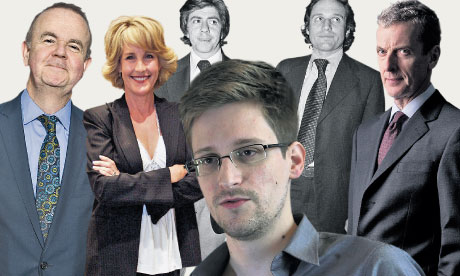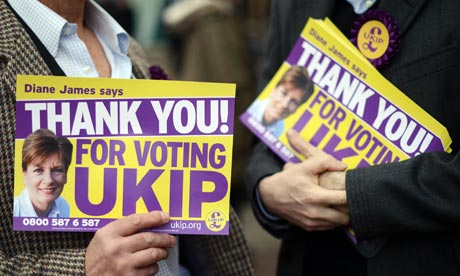Political parties have acted as judge, jury, supplicant and advocate in their move to amend the RTI Act and exempt themselves from its purview. Their rhetoric on transparency is more hollow than ever
A friend called the other day, and said: “I want to congratulate all of you in the RTI community, because you have managed to do what no one, and nothing else has managed to for a long time: bring about unity and unanimity in the political class.” His comment, laced with irony and sarcasm was not far from the truth.
The Central Information Commission (CIC) decision to classify political parties as public authorities and bring them under the RTI Act has kicked up a storm in our democratic polity.
The reaction of the parties to the Central Information Commission order that political parties will be considered public authorities under the RTI has been poor in content and abysmal in form. It is a pity that the opportunity provided for the politician to transform into a statesman is lost in the muddle of apprehension and self-interest. For a country that is unanimous in its opinion that electoral politics and democratic governance are being perverted by the undue influence of money, and vested interests, both the content and the form of reaction are important.
Let us understand the content first. Through the one line amendment, political parties in parliament are seeking to carve out an exclusive space for themselves beyond the reach and purview of the RTI Act. While all other associations or bodies constituted by law, can come under the purview of the RTI Act, an insertion “explains” that by law, this will exclude any association of persons registered under the Representation of Peoples Act.
Here are a set of implications that arise from this quick and potentially decisive amendment: The representatives of the people, have made it clear that they do not want to be answerable to the people. By removing themselves completely from the purview of the transparency law, they are preventing any obligation they might have to directly answer any query from the citizen on any issue.
This amendment dramatically exposes the extent of doublespeak. Many politicians have shared their concern with the growing influence of money, and even political parties have expressed distress that the use of unaccounted money is completely perverting the democratic political system. While parties across the spectrum have publicly reiterated their commitment to full financial transparency, the content of this “consensual” amendment has revealed the truth. By proposing a blanket exemption for themselves from the RTI Act, it is clear that they are not willing to answer questions of the citizen on anything- even financial matters.
Credibility gap
The yawning gap between ‘statements submitted’ and real expenditure during elections is no secret. Recent statements by politicians have exposed dramatically what real election spending to "secure" a seat means. This does not end with party issues but also determines key appointments in government. Is it surprising that the citizen wants to know where the money comes from and where it goes?
This amendment would negate one of the biggest opportunities we have had to identify, and fight the misuse of money in politics. Let us not have any illusions. Fighting corruption, and corporate/commercial influence in politics is only possible with the help of the ordinary citizen. The RTI has evolved into a decentralised process that allows an ordinary person to interface at her own expense and with her constitutional legitimacy as a sovereign citizen. The multiple uses of the Act to improve government functioning are so many that they defy enumeration. Accepting applicability of the RTI is therefore seen as the one stated intent of any structure to lay itself open to scrutiny and accountability. It is the many questions that citizens will pose, in a million places across the country, that will shine the torch, search, probe, expose, audit, and actually help regulatory institutions like the income tax department, and the election commission to eventually bring about real change and political reform.
Legitimate objections
This is not to say that we do not understand the complexities of political activity, and the need to keep some internal discussions out of the public domain. We do not feel that every question that is asked by every citizen needs to be answered under this, or any other law. The technical reading of the Act by the CIC brought political parties under the purview of the RTI Act as public authorities. The technical implication of being classified a ‘public authority’ has led to many legitimate objections from party leaders. Even with the current CIC decision, the concerns could have been “technically” addressed without amending the act – even through some amendments to the rules, perhaps. After all, even the defence establishment keeps strategy and internal matters out of the public domain while subjecting itself to, and benefiting from the purview of the RTI Act.
The nature of the political response has been even more disappointing and unacceptable. When a privileged class closes ranks to impose its decision, it is “technicalities” with the inevitable fallout that will determine the outcomes. Politicians know that substantive constitutional principles override technicalities of law. That is why perhaps in this case alone they were not willing to take the risk of taking the CIC decision to court.
And now the likelihood is that they will pass this amendment in their own court without even allowing the matter to go to the Standing Committee of Parliament. Can any institution be judge, jury, supplicant, and advocate, in a matter in relation to itself? Is this interpretation of privilege constitutional? Is it ethical or logical?
Eventually, none of us want to weaken the political system, or burden it with questions that will not allow it to function. But a blanket exemption can surely not be the means to make a political system strong, transparent, and accountable. This has led to the belief that freedom in internal matters and strategy like candidate selection is only a red herring to take the attention away from the real worry of financial disclosures.
If there had to be an amendment, it was incumbent upon parliamentarians to show that the political class was going to overcome technicalities to improve the scope of the law, not curtail it. People focus on substantive issues- not the technicalities. They want parties to live up to their rhetoric of transparency, and their stated desire to fight corruption in politics. This was in fact a historic opportunity lost to the exigencies of obvious and immediate self- preservation. It could have been used to enforce greater transparency not only amongst the political class, but also to expand direct coverage of the RTI to all institutions and organisations who spend public funds. In finding the substantively correct way of broadening coverage of the RTI, the political class, would not only have created a standard for themselves, but for the whole fabric of Indian society.
That would have been a huge quantum leap towards a healthy and ethical society.









